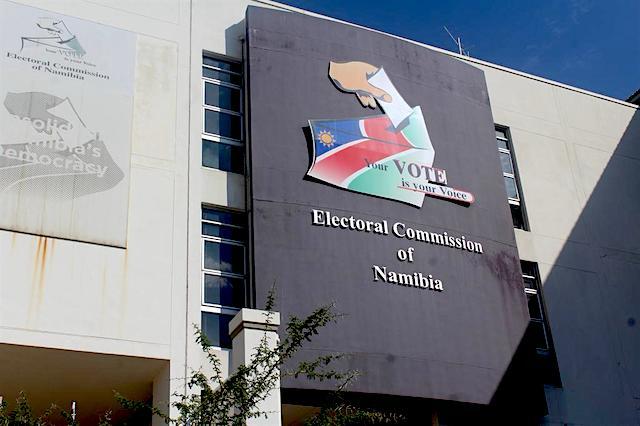There are some general and specific rules that apply when you want to claim value-added tax (VAT) from the Receiver of Revenue.
In this article we look at the general rules that you should bear in mind. In a follow-up article we will look at the specific rules.First and foremost, you can only claim VAT back from the Namibian Receiver of Revenue that has been raised by a Namibian registered VAT person or VAT that has been paid to the Namibian Receiver of Revenue on the import of goods.The VAT that you have paid to a South African supplier or resident of any other country cannot be claimed back from the Namibian Receiver of Revenue.The Namibian Value-Added Tax Act provides that a registered person can claim a deduction for the total amount of VAT paid to another registered person from the VAT charged to customers on goods or services.VAT paid in respect of the import of goods by the registered person in the course of carrying on his enterprise may also be claimed against the VAT charged to the registered person’s clients.The claim is effectively lodged when you file the VAT return for the specific tax period.Any Namibian resident (an individual or other legal person) who is not registered for VAT may not claim any VAT from the Receiver of Revenue.Any VAT that you and I therefore pay when we buy goods from the local hardware store to repair something at home can therefore not be claimed because we are not registered for VAT.This general rule includes all enterprises that make ‘exempt supplies’ as defined in the Value-Added Tax Act.Examples include the rental of long-term residential accommodation to another person, the provision of medical services and the provision of educational services.Any person who registers for VAT for the first time may only claim the VAT paid on non-capital goods, acquired for sale or consumption in the enterprise, if the goods were acquired within a four-month period prior to the date of registration – provided the goods so acquired are on hand at the date of registration.Therefore, the VAT paid on any goods acquired for resale and consumable goods, such as stationery, acquired in the four-month period prior to becoming registered for VAT that have not been sold or used on the date of registration can be claimed in the first VAT return.No VAT paid on any capital goods acquired (locally or imported) for purposes of your business prior to becoming registered for VAT can be claimed irrespective of the fact that you will use these goods in your business.This provision of the Act is very iniquitous because the capital goods are ultimately acquired for use in an enterprise where VAT will be raised on goods or services sold to customers.The fact that the VAT paid on the capital goods cannot be claimed also results in a complicated set of rules when such an asset is sold on a later date.In this regard, the Act provides that when goods are sold and the seller was not allowed to claim the VAT paid on the acquisition of the goods, no VAT should be raised when such goods are sold.To illustrate this by example, assume a computer was acquired for a business in June but the business was only registered for VAT in July.The VAT charged by the computer supplier cannot be claimed by the business that has bought it in its first VAT return because it was not registered at the time the computer was acquired.When the computer is sold in December, no VAT should be charged on the selling price by the business because it was not allowed to claim VAT paid when the computer was acquired.This general rule just proves how complex VAT is and the Revenue Authority should consider simplifying the Act in this regard.Another general rule that all registered persons should bear in mind is that no VAT paid may be claimed in respect of a local supply if you are not in possession of a valid tax invoice or tax credit note at the time you want to claim the VAT paid to suppliers (so lodge the VAT return!).The Act prescribes the requirements for a valid tax invoice or credit note.Essentially, these documents must have the VAT number of the person issuing it, the seller’s and the purchaser’s name and address, the description of the goods or services supplied, the value of transaction, the VAT charged on the value of the goods or services sold and the total amount payable including VAT.You should bear in mind that if the value of the supply is less than N$100 excluding VAT and it is a cash transaction, there is no need to be in possession of valid tax invoice to claim the VAT paid in your VAT return.The VAT paid on the import of goods can only be claimed if you are in possession of the appropriate import document and proof that the import VAT has been paid at the time the VAT return is submitted.It is therefore essential that you ensure you are in possession of all your import documents at the time you claim the import VAT.The VAT Act provides that you may claim any VAT paid to suppliers or on import of goods in the VAT period for which you lodge the VAT return or the previous two tax periods.VAT paid to suppliers or on imports for periods longer than six months must be claimed in writing from the Receiver of Revenue and be supported by documentary proof within three years of the tax being paid.Next week we look at the specific rules that apply to VAT payments that may not be claimed.In this series of articles, Cameron Kotze, the Tax Partner at Ernst and Young, discusses some topical tax issues.Should you have queries, you are invited to send them to cameron.kotze@za.ey.com.In a follow-up article we will look at the specific rules. First and foremost, you can only claim VAT back from the Namibian Receiver of Revenue that has been raised by a Namibian registered VAT person or VAT that has been paid to the Namibian Receiver of Revenue on the import of goods. The VAT that you have paid to a South African supplier or resident of any other country cannot be claimed back from the Namibian Receiver of Revenue. The Namibian Value-Added Tax Act provides that a registered person can claim a deduction for the total amount of VAT paid to another registered person from the VAT charged to customers on goods or services. VAT paid in respect of the import of goods by the registered person in the course of carrying on his enterprise may also be claimed against the VAT charged to the registered person’s clients. The claim is effectively lodged when you file the VAT return for the specific tax period. Any Namibian resident (an individual or other legal person) who is not registered for VAT may not claim any VAT from the Receiver of Revenue. Any VAT that you and I therefore pay when we buy goods from the local hardware store to repair something at home can therefore not be claimed because we are not registered for VAT. This general rule includes all enterprises that make ‘exempt supplies’ as defined in the Value-Added Tax Act. Examples include the rental of long-term residential accommodation to another person, the provision of medical services and the provision of educational services. Any person who registers for VAT for the first time may only claim the VAT paid on non-capital goods, acquired for sale or consumption in the enterprise, if the goods were acquired within a four-month period prior to the date of registration – provided the goods so acquired are on hand at the date of registration. Therefore, the VAT paid on any goods acquired for resale and consumable goods, such as stationery, acquired in the four-month period prior to becoming registered for VAT that have not been sold or used on the date of registration can be claimed in the first VAT return. No VAT paid on any capital goods acquired (locally or imported) for purposes of your business prior to becoming registered for VAT can be claimed irrespective of the fact that you will use these goods in your business. This provision of the Act is very iniquitous because the capital goods are ultimately acquired for use in an enterprise where VAT will be raised on goods or services sold to customers. The fact that the VAT paid on the capital goods cannot be claimed also results in a complicated set of rules when such an asset is sold on a later date. In this regard, the Act provides that when goods are sold and the seller was not allowed to claim the VAT paid on the acquisition of the goods, no VAT should be raised when such goods are sold. To illustrate this by example, assume a computer was acquired for a business in June but the business was only registered for VAT in July. The VAT charged by the computer supplier cannot be claimed by the business that has bought it in its first VAT return because it was not registered at the time the computer was acquired. When the computer is sold in December, no VAT should be charged on the selling price by the business because it was not allowed to claim VAT paid when the computer was acquired. This general rule just proves how complex VAT is and the Revenue Authority should consider simplifying the Act in this regard. Another general rule that all registered persons should bear in mind is that no VAT paid may be claimed in respect of a local supply if you are not in possession of a valid tax invoice or tax credit note at the time you want to claim the VAT paid to suppliers (so lodge the VAT return!). The Act prescribes the requirements for a valid tax invoice or credit note. Essentially, these documents must have the VAT number of the person issuing it, the seller’s and the purchaser’s name and address, the description of the goods or services supplied, the value of transaction, the VAT charged on the value of the goods or services sold and the total amount payable including VAT. You should bear in mind that if the value of the supply is less than N$100 excluding VAT and it is a cash transaction, there is no need to be in possession of valid tax invoice to claim the VAT paid in your VAT return. The VAT paid on the import of goods can only be claimed if you are in possession of the appropriate import document and proof that the import VAT has been paid at the time the VAT return is submitted. It is therefore essential that you ensure you are in possession of all your import documents at the time you claim the import VAT. The VAT Act provides that you may claim any VAT paid to suppliers or on import of goods in the VAT period for which you lodge the VAT return or the previous two tax periods. VAT paid to suppliers or on imports for periods longer than six months must be claimed in writing from the Receiver of Revenue and be supported by documentary proof within three years of the tax being paid. Next week we look at the specific rules that apply to VAT payments that may not be claimed. In this series of articles, Cameron Kotze, the Tax Partner at Ernst and Young, discusses some topical tax issues. Should you have queries, you are invited to send them to cameron.kotze@za.ey.com.
Stay informed with The Namibian – your source for credible journalism. Get in-depth reporting and opinions for
only N$85 a month. Invest in journalism, invest in democracy –
Subscribe Now!








